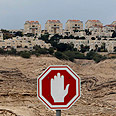The 10th day of the Hebrew month of Tevet commemorates an important precursor to the current siege that surrounds Jerusalem. Important, not because of the similarities between today and then but because of the refreshing opportunity implicit in the post-modern siege, both for Israel and for those who seek to impede its actions.
Regional conquest and domination were the obvious goals and, ultimately, results of Nebuchadnezzar II's siege of Jerusalem on the Tenth of Tevet, 588 years B.C.E. Ancient Babylonia was building its empire, and Jerusalem was not to stand in its way. To this day Jews the world over fast on the Tenth of Tevet, aligning their worldview with that of their biblical prophets who viewed the siege as a harbinger of the Temple's destruction, the fall of Jerusalem and the Jewish exile. But must a siege always spell doom?
The odds were stacked against Jerusalem. Judea's brethren in the northern kingdom of Samaria had long been overrun, exiled and dispersed. Clearly, the domineering Babylonians had the military advantage over the civilians within Jerusalem's walls and the diplomatic edge over the Judean kings who were largely subservient to Babylonia. Once the siege was in full swing the only offense that could be offered was a strong defense. As time would tell, seasoned wellsprings of uncompromising leadership and inspired camaraderie had long dried up. If not Nebuchadnezzar II it would have been someone else. Jerusalem's days were numbered.
A curious and historic role reversal has come to the fore in the wake of the international E1 frenzy. Under normal circumstances, he who lays a siege is he who has the upper hand. But traditional sieges have always presented a clear and present danger to their victims. When the battlefield is replaced by press rooms and war is waged with windy condemnations, can the aggressor assume that he has a strategic advantage? Should he? And need the besieged party shudder at the thought of protracted belligerence?
Belabored, anticipated, thoughtless and knee-jerk attacks from EU countries regarding Israel's decision to fortify its capital city awaken a true sense of sympathy for Europe's impotence beyond its own borders. Berating Israeli diplomats adds some spice to the anti-Israel monotony, but photo ops are short lived and shifting the props on the set makes no impact on the ground. Indeed, the tragedy of fruitless attempts to impact the Middle East via mass media and open letters from Diaspora rabbis to Israel's prime minister lies not in the inefficacy of these failed approaches, but in the desperate delusion that they may actually make a difference.
Israel was infamously slow on the uptake when it came to identifying the sophisticated public relations war that it now faces on all sides. But it has become far more concerned about being forced to live in bomb shelters than it is threatened by condescending statements by statesmen who care little for the survival of its sovereignty. Notwithstanding the multiplicity of narratives about what Israel was, is and will be, reality has a power all its own.
Time for Israel to speak
To date, Israel emerges as the indisputable victor of the international diplomatic and propaganda siege that has befallen its capital city and, by extension, its people. On the foot-heels of Operation Pillar of Defense and on the eve of national elections, external pressure applied to Israel serves to strengthen the resolve of its people. Israelis have learned to live with international disdain for their very presence in the only country they can call home. Instead of apologetics, they engage in self preservation. When Tel Aviv is hit by the same rockets that have consistently plagued Sderot, the people of Israel band together. There's a reality on the ground, and it will not yield to those who launch endless assaults from the world of ideas.
But is this a war that Israel wants to win? And if it is, then is this the way that Israel wants to win it?
Sure, the triumph of Zionism against relentless surrounding pressure is sweet. Yes, it's difficult for Israelis to avoid a boost to their national ethos and ego following incessant efforts by their detractors to aggrandize the significance of the Jewish State by singling out the heinous crime of building homes while turning a blind eye to Syria's gruesome civil war. But Israel has little to gain from its own self justification. And it has even less to offer.
In many respects, today's siege of Jerusalem amounts not to an undermining of its would-be fortifications but to a desperate cry for help from the international community. In a season when Western nations experience swift demographic overhauls, at a time when fiscal cliffs loom just around the bend and in a climate of nuclear proliferation among the world's less predictable parties, somehow or other Israel grows increasingly stable. How does Israel survive in the Middle East? How does it manage to thrive?
In a benevolent and unwarranted attempt to judge the rhetoric of the international community favorably, we can attempt to attribute an optimistic angle to the world's otherwise inexplicably disproportionate preoccupation with Israel.
Perhaps, deep down inside, these nations want Israel to configure new algorithms for the benefit of humanity. After all, if Israel can save itself, then maybe it can save others as well. If Israel can generate a successful formula for coexistence with its Arab neighbors from without and from within, then maybe "peace on Earth" is not an empty slogan. If Israel can learn from the lessons of its past, then maybe the construction of Jerusalem will be viewed as a greater contribution to mankind than its destruction.
Jerusalem's besiegers are a captive audience. It's time for Israel to speak.
Avi Zimmerman is the executive director of the Ariel Development Fund
















